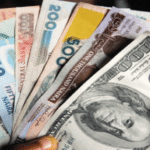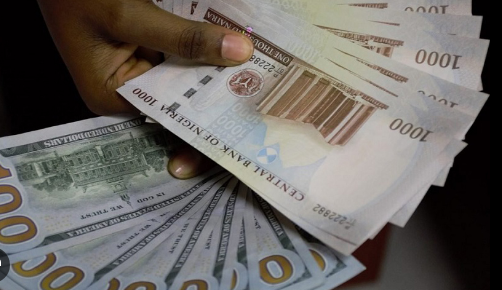Why the Naira Keeps Falling Against the Dollar in 2025 — Expert Analysis
Why The Naira Is Struggling Against The Dollar — Expert Opinions
Intro
The Nigerian Naira has seen significant fluctuations in value over the past few years, with 2025 bringing new challenges to the foreign exchange market. From global economic pressures to domestic policy shifts, the currency’s performance against the U.S. dollar has become a topic of national concern. In this article, we break down the reasons behind the Naira’s struggles, featuring insights from economists, business leaders, and policy experts.

Understanding The Naira’s Decline
For years, Nigeria’s currency has battled inflation, fluctuating oil prices, and policy inconsistencies. In 2024 and early 2025, however, the decline has been sharper, raising questions about the sustainability of the current economic model.
Key Factors Weakening The Naira
1. Declining Oil Revenue
Nigeria relies heavily on crude oil exports for foreign exchange earnings. According to the Nigerian National Petroleum Company Limited (NNPCL), crude oil accounts for over 85% of Nigeria’s export revenue. In late 2024, falling oil prices combined with production shortfalls led to a significant reduction in foreign currency inflows, putting pressure on the Naira.
2. Foreign Exchange Policy Shifts
The Central Bank of Nigeria (CBN) has implemented several policy changes over the past year, including floating the Naira to attract foreign investment. While intended to stabilize the market, the policy also allowed market forces to push the Naira to weaker levels.
“Currency floatation works in economies with strong export capacity. Nigeria is still import-dependent, so the result is immediate depreciation,” says Dr. Chinedu Obidike, a Lagos-based economist.
3. Import Dependency
Nigeria imports a vast range of goods from refined petroleum products to food and electronics. This means constant demand for dollars, which outweighs supply.
Even with local manufacturing growing in certain sectors, imports still account for over 60% of consumer goods in Nigeria.
4. Inflation And Speculation
High inflation rates hovering around 28% in early 2025 have weakened purchasing power. This drives both businesses and individuals to seek safer assets like the U.S. dollar, further driving up demand and lowering the Naira’s value.
Expert Opinions On The Way Forward
Strengthen Local Production
According to Mrs. Funke Adeyemi, a financial analyst in Abuja:
“Nigeria needs to invest heavily in agriculture, manufacturing, and technology to reduce import dependency. That’s the only way to balance our foreign exchange demand and supply.”
Boost Foreign Direct Investment (FDI)
Experts argue that creating a stable business environment will encourage foreign investors, bringing in more dollar inflows. Political stability, consistent policy direction, and improved infrastructure are key.
Diversify Export Base
Economists stress the need to promote non-oil exports such as cocoa, sesame seeds, cashew, and processed goods. Countries like Malaysia have successfully reduced currency volatility by diversifying their export portfolio.
Impact On Nigerians
The Naira’s struggles are not just numbers on a forex chart they affect daily life:
-
Rising Food Prices – Imported staples like rice and wheat cost more.
-
Higher School Fees – Families sending children abroad now face bigger bills.
-
Business Costs – SMEs reliant on imported raw materials are struggling with rising expenses.
Government’s Response
In early 2025, the CBN introduced:
-
Foreign Exchange Market Unification – Closing gaps between official and parallel market rates.
-
Incentives for Exporters – Offering tax breaks and faster forex access.
-
Partnerships with Private Sector – Supporting local industries to meet domestic demand.
While these measures are steps in the right direction, experts caution that results may take years.
Conclusion
The Naira’s battle against the dollar is a symptom of deeper economic issues overreliance on imports, dependence on oil revenue, and structural inefficiencies. Strengthening local industries, encouraging foreign investment, and stabilizing macroeconomic policies will be crucial to restoring confidence in Nigeria’s currency.




